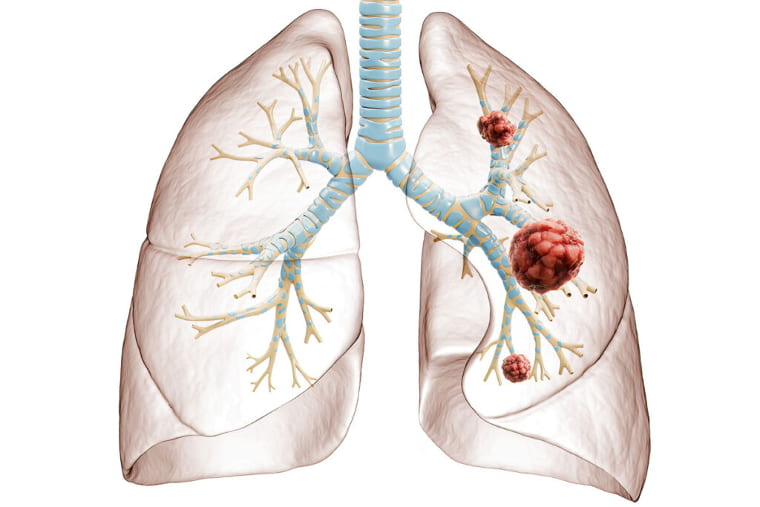Physicians treating patients with early-stage lung cancer face a conundrum: choosing potentially helpful yet toxic therapies such as chemotherapy, radiation or immunotherapy to knock out the cancer and lessen the risk of it spreading to the brain, or waiting to see if lung surgery alone proves sufficient. When up to 70% of such patients do not experience brain metastasis — the spread of cancer to the brain — the question arises: Who should receive additional aggressive treatments, and who can safely wait?
A new study led by Washington University School of Medicine in St. Louis could help physicians strike the right balance between proactive intervention and cautious monitoring for patients with early-stage lung cancer. The study, published March 4 in The Journal of Pathology, uses an artificial intelligence (AI) method to study patients’ lung biopsy images and predict whether the cancer will spread to the brain.
“There are no predictive tools available to help physicians when treating patients with lung cancer,” said Richard J. Cote, MD, the Edward Mallinckrodt Professor and head of the Department of Pathology & Immunology. “We have risk predictors that tell us which population is more likely to progress to more advanced stages, but we lack the ability to predict individual patient outcomes. Our study is an indication that AI methods may be able to make meaningful predictions that are specific and sensitive enough to impact patient management.”
Lung cancer is the leading cause of cancer death in the U.S. and worldwide. Most lung cancers are characterized as non-small cell lung cancers, which are largely, but not exclusively, caused by smoking. For early-stage cancer patients, tumors are confined to the lung, and surgery is recommended as a first line of treatment. Roughly 30% of such patients progress to advanced stages, when the cancer spreads to the lymph nodes and other organs. With the brain often affected first, such patients require additional treatments, including chemotherapy, targeted drug therapy, radiation therapy and/or immunotherapy. However, physicians have no way of knowing whose cancer will progress, so they frequently treat patients with aggressive therapies out of caution.
Cote worked with Ramaswamy Govindan, MD, the Anheuser Busch Endowed Chair in Medical Oncology and associate director of the oncology division at Washington University; Mark Watson, MD, PhD, the Margaret Gladys Smith Professor in the Department of Pathology & Immunology; and Changhuei Yang, PhD, a professor of electrical engineering, bioengineering, and medical engineering at the California Institute of Technology, to determine if AI could predict whether cancer will spread to the brain.
In diagnostic testing, a pathologist examines biopsied tissues under a microscope to identify cellular abnormalities that may hint at disease. Advanced technologies — such as AI — are being explored to replicate what a pathologist sees when making diagnoses but with greater accuracy, Cote explained.
A key question: Can AI detect abnormal features that a pathologist cannot?
